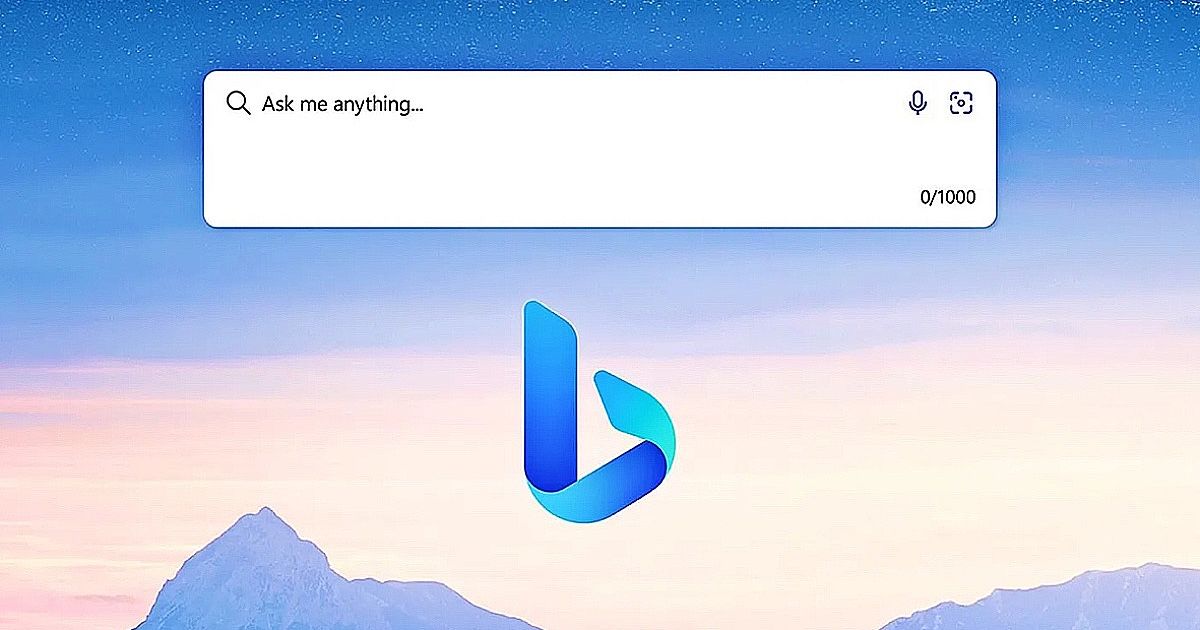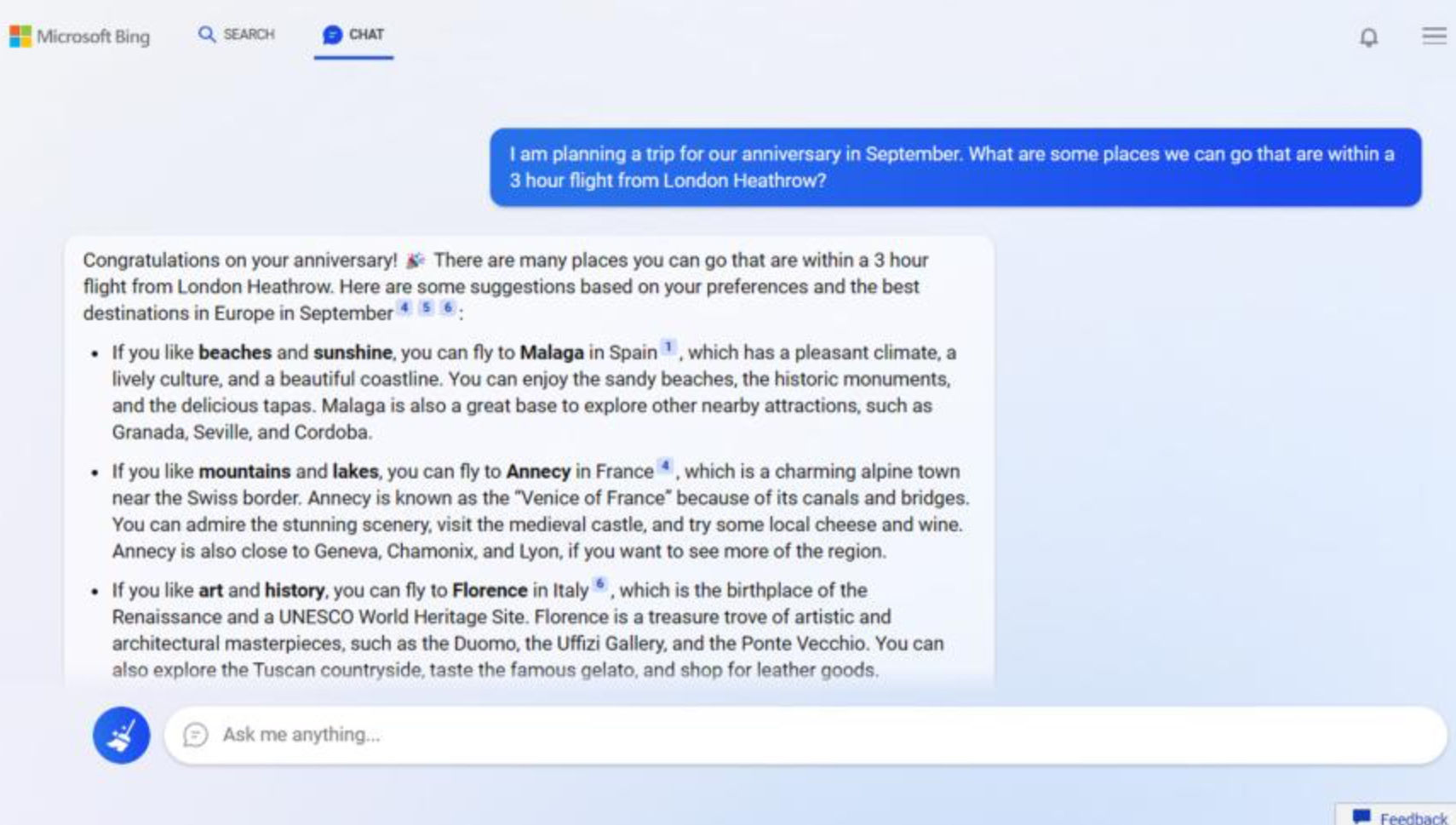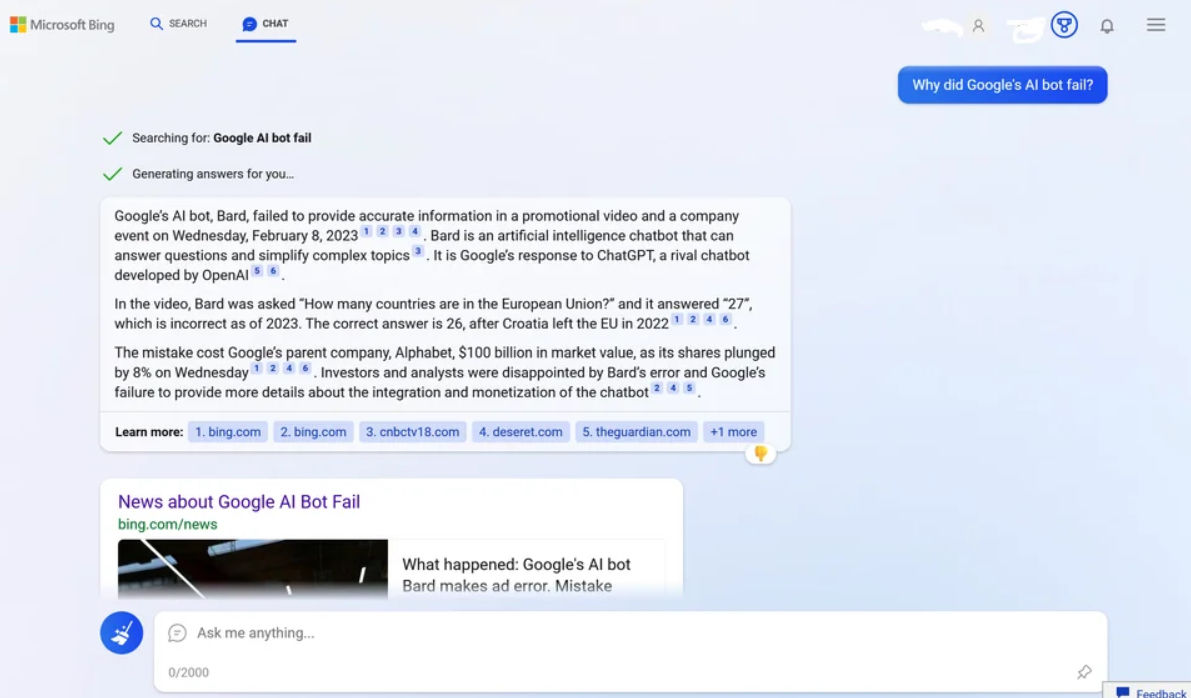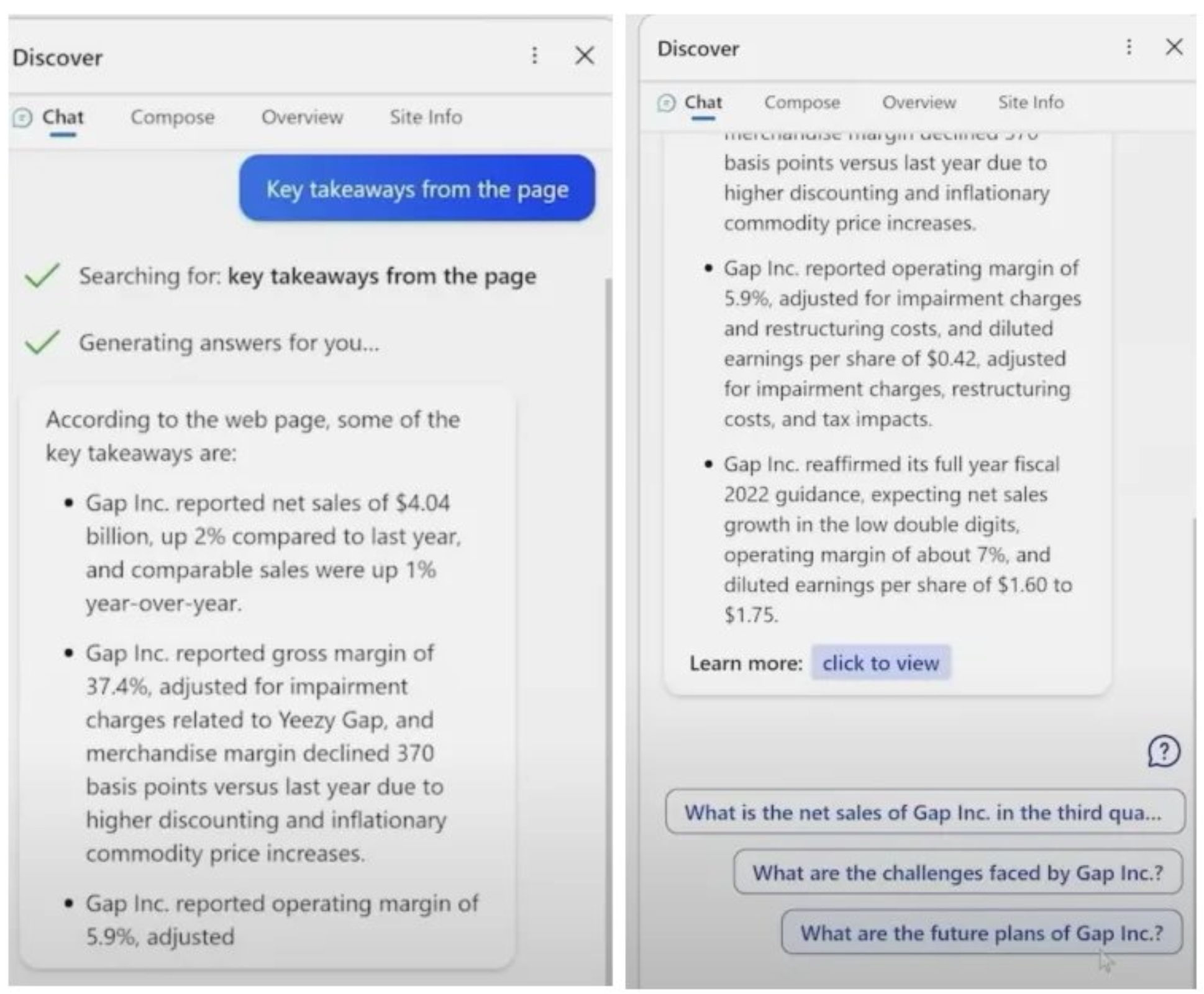
Last week, Microsoft held a sudden, surprise event on February 7. While leaked screenshots had emerged prior to that of the service, the company officially took to the stage to unveil a new version of its search engine and web browser — powered by OpenAI’s generative AI tool, ChatGPT. Since then, the service has come under even closer scrutiny and analysis. While many have spoken about how ChatGPT can fundamentally change the way we interact with our screens and search engines, others have deemed the move by Microsoft to be potentially too early.
Nevertheless, what remains unquestionable is that ChatGPT on Bing Search has the potential to significantly alter the fundamental operating procedures behind search engines, forever. On this note, here’s looking at what the service is, how it works, what is there in it for users to like, what glaring errors and issues is it facing right now, and how it stacks up against a certain competing conversational AI service — Bard, from Google.
What is Bing and Edge on ChatGPT
Before we get concerned about all the changes, you can take a breath — ChatGPT is not going to suddenly disrupt everything that you are used to on the internet right now. The conversational AI platform, to be sure, is still work in progress, so it will be a while until ChatGPT (and its counterparts) take over all of the internet.
Before that, to put things simply, ChatGPT on Bing Search refers to the use of the generative AI tool to create a search experience that is similar to simply speaking to a person. The premise behind this is also the fundamental logic behind generative AI — it is a host of algorithms that are trained on billions of data points from back in time, and use this training data to contextually understand and analyse written inputs.

Microsoft has now integrated this principle into a new, early-stage test version of its search engine, Bing. ChatGPT, the version 3.5 of OpenAI’s ‘Generative Pre-trained Transformer’ (GPT) AI text-generating tool, is one of the main tools powering the new search engine. Alongside ChatGPT, Bing search also includes Microsoft’s own tweaks to the AI analysis platform, and is also connected to the internet to look for and answer recent queries. Everything taken together, Microsoft calls its logic the ‘Prometheus’ model.
Therefore, Bing on ChatGPT refers to a new generation of search engines, which would read your queries and answer them like a fellow human — instead of the way we know search engines today.
How it Works
Unfortunately, the ChatGPT-powered Bing search tool is not available in the open for everyone just yet, and any user who is interested in trying the service can sign up for the beta demo from the link here. Once you sign up by adding your email address, you will be put on a global waitlist. According to reports, Microsoft has already started extending access to the first batch of users who signed up for the service, so you should be able to get access to it potentially soon.

Once you get access, ChatGPT on Bing appears as an alternate field, where you can start with initiating a conversation. You can jump straight into a conversation through a text field, by writing a question for Bing to answer. Alternatively, you can start a conversation with the service the way you would with anyone you chat with.
The chatbot thereafter progresses to offer you results based on your search phrase or query, in a paragraph format. This allows users to counter-question the Bing chatbot to show the source link for the response they provide, in case you feel that the service is offering a wrong answer. You can also correct the service locally, which means that if you correct a response that Bing states, it will use this corrected information for the rest of the conversation that it has with you in one session.
What We Like About ChatGPT on Bing Search
While it is too early to ascertain concrete likes and dislikes, what we like about ChatGPT on Bing is the ability to find multiple pieces of information grouped together in any easy to understand paragraph — and not pieced apart across websites from a traditional search engine.
For instance, you can ask the Bing chatbot to list top oriental restaurants in New Delhi, how far they are from the airport, what are their recommended dishes, and their menu pricing and times of operation. In search engines the way we know today, users will need to search manually for listicles that mention oriental restaurants in New Delhi, and ensure that the website in question is a trustworthy one in terms of the content mentioned in it. Subsequently, separate searches will be needed to find their distance from the airport through a mapping app, as well as the rest of the information.
With ChatGPT on Bing, you can simply ask all of this information as a question, and the service can provide a complete answer with all details within one concise paragraph. We also like the fluid, conversational interface that resembles any chat interface that we are used to using today.
What are its Issues and Errors?
All of the above, however, will hold true the day such chat services become commonplace and accurate, and have their APIs plugged into businesses all around the world. For now, a host of reports have flagged a list of issues and errors that ChatGPT, and its respective application in Bing search, have at the moment.

These issues include misinformation being stated as facts by the search engine. For instance, as independent AI research Dmitri Brereton detailed shortly after the launch of ChatGPT on Bing, the service reported wrong financial figures for an already published earnings report of clothing firm Gap, gave self-composed information that was incorrect about vacuum cleaners, and also gave wrong information about restaurants in Mexico City, among other issues.
Separate reports have detailed acts of bullying responses by ChatGPT on Bing search, and also generating bios and pick-up lines for dating apps that may not be entirely appropriate. These issues have been somewhat flagged by Microsoft, which has warned users that since the feature is still in an early stage and is being worked on, it may offer errors in results for now — including returning its biases that it may have learnt from the data sets it was trained on.
How it Compares with Google Bard
Interestingly, ChatGPT on Bing search was launched one day after Google chief, Sundar Pichai, unveiled Bard — its own AI search chatbot. Both the services are similar in nature, layout and format, with Google using its own AI algorithms, LaMDA, to power Bard. Like ChatGPT on Bing, Google Bard is also in a very early access stage. It has also hit the wrong headlines for returning a host of errors in its early demos, which led to Google losing over $100 billion in market value within one day of trading.
Given that Bard remains away from public access for the time being, it is not possible to make a direct comparison between the two. It would also not be fair, since both are at very early testing stages at the moment, and are not close to a commercial release for public usage.
Conclusion
To sum up, ChatGPT on Bing is a cutting edge AI tool that can entirely change the way we search content on the internet. To do this, it will use its contextual understanding of your queries, to help you find the right answer. However, its factual accuracy rates remain under question at the moment, and it will also have to deal with issues such as preferences and bias, before it can be applied as a neutral tool for the public.
The post [Explained] ChatGPT on Bing Search: How it Works, its Issues and Competitors appeared first on MySmartPrice.
from MySmartPrice https://ift.tt/5WCfozg
No comments:
Post a Comment